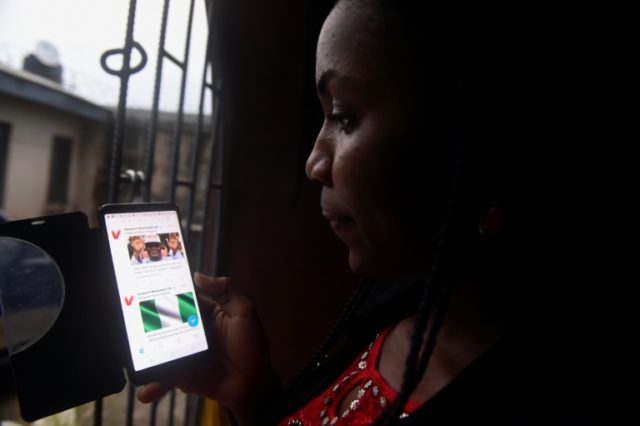Lagos (AFP) – When one of Africa’s richest men joined Twitter and posted his first tweet on May 11 this year, the fanfare in his native Nigeria was immediate.
News that Femi Otedola had opened an account spread like wildfire and the billionaire head of Forte Oil appeared to relish the engagement.
“Social media isn’t exactly my forte but I learn fast,” he wrote, even signing his tweets “Ote$”.
But within hours of his Twitter debut, numerous accounts using his name appeared online. Some that had been dormant for years suddenly sprang to life.
Unsuspecting users would not necessarily have been able to identify which were real and which were fake, as Twitter suspended its “blue tick” verifications in November 2017.
Soon, Otedola was forced to distance himself from news reports based on tweets posted by one imitation account with more than 8,000 followers.
The account described itself as a “parody” but in practice appeared anything but.
Otedola announced that he and a charitable foundation set up by the Nigerian businessman Tony Elumelu were offering 10 million naira ($27,400/24,000 euros) to up to 50 young entrepreneurs.
The imitation account repeated the offer and urged people who responded to send their details to a “PA”, who would then give further instructions.
Elumelu’s foundation even responded to the tweets from the imposter, inadvertently giving it credibility.
Otedola expressed his disappointment at the attempts at online fraud in his name and in June tweeted he would leave Twitter until he was verified. He has not tweeted since.
– Email scams –
Nigeria has an unenviable reputation around the world for corruption and is known particularly for its “419” email scams, named after the section of the penal code covering fraud.
Fake social media accounts of celebrities, government ministers, news pages and blogs appear to be the equivalent of modern-day “yahoo boys” — online con artists.
Many accounts are designed to look like established figures and organisations.
Tolu Ogunlesi, a media adviser to President Muhammadu Buhari, said the government had reported “hundreds” to tech companies since 2015.
“A particular case was that we had people impersonating the minister of finance on Facebook. They were using the account to financially defraud people,” he told AFP.
“A lot of them run pay-for-job schemes. It’s a common scam, asking people to pay some money in exchange for a job.”
Before the end of the year, the government will publish a database of confirmed social media pages of elected officials, he added.
But Ogunlesi predicted that misinformation online will still increase as elections approach in February next year when former vice president Atiku Abubakar will challenge Buhari.
– ‘Mischief makers’ –
Abubakar’s campaign team itself has had to publicly distance itself from accounts in his name on Facebook that have been liked by tens of thousands of people.
One in the name of Peter Obi, his pick for vice president, had more “likes” than his official page.
The accounts include posts encouraging supporters to share pro-Abubakar slogans online for money.
Another on Twitter and Facebook recently posted that Abubakar was grateful to have received support from a LGBT rights group.
But there is no evidence of any such organisation having done so. Nevertheless, the claim made it into a number of Nigerian newspapers quoting an official who appears not to exist.
Many apparent support groups based on ethnicity, gender or religion are often fabricated in Nigeria to attack rival positions.
In this case, LGBT support would likely be frowned upon in Nigeria, where same-sex relationships are banned and religious conservatives are hostile to the rights of sexual minorities.
“Whoever posted it did it for a desired backlash from a typically conservative audience,” said Segun Showunmi, an aide to Abubakar.
“What we have observed is that mischief makers, sometimes the political opposition, try to make a mess, because the regulations on social media are not very strong yet.”
– Baseless claims –
Even the algorithms that govern social media sites are often tricked by fake news pages, which are designed to look like established news sites, with only minor differences.
Last year, when Buhari was in London undergoing treatment for an unspecified illness, sites imitating Fox News and London’s Metro newspaper announced his death.
Yet unverified pages and imitation sites often crop up in Facebook’s “Suggested Pages” column, alongside established accounts.
One designed to look like the broadcaster African Independent Television (AIT), for example, has 46,000 followers.
But most of its posts are conspiratorial and baseless claims. Few posts link to articles and when they do, it is to blog sites unassociated with the real AIT.

COMMENTS
Please let us know if you're having issues with commenting.